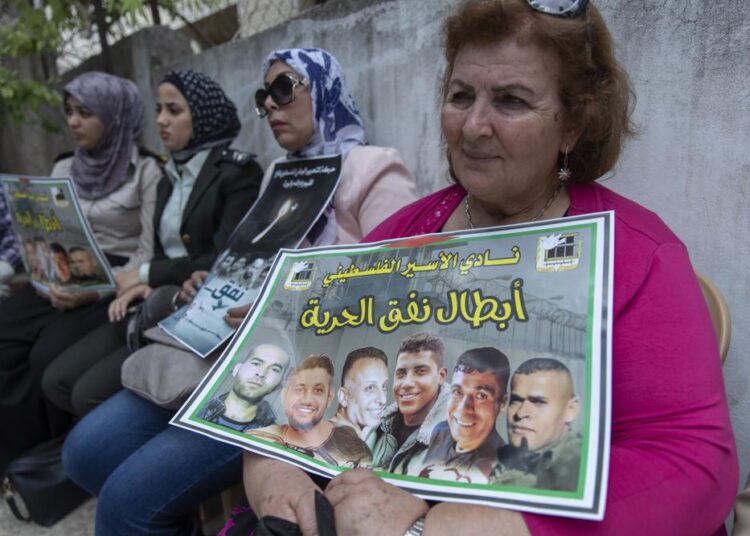RAMALLAH — The cinematic escape of six prisoners who tunneled out of an Israeli penitentiary earlier this month shone a light on Israel’s mass incarceration of Palestinians, one of the many bitter fruits of the conflict.
Hundreds of thousands of Palestinians have passed through a military justice system designed for what Israel still portrays as a temporary occupation, but that is now well into its sixth decade and critics say is firmly cemented, according to AP.
Nearly every Palestinian has a loved one who has been locked up in that system at some point, and imprisonment is widely seen as one of the most painful aspects of life under Israeli rule.
The saga of the six, who were eventually recaptured, also underscored the irreconcilable views Israelis and Palestinians hold about the prisoners and, more broadly, what constitutes legitimate resistance to occupation.
Israel classifies nearly every act of opposition to its military rule as a criminal offense, while many Palestinians see those acts as resistance and those engaged in them as heroes, even if they kill or wound Israelis.
Israel has granted limited autonomy to the Palestinian Authority, which administers cities and towns in the occupied West Bank and is responsible for regular law enforcement. But Israel has overarching authority and the military regularly carries out arrest raids even in PA-run areas. Israel seized the West Bank along with east Jerusalem and the Gaza Strip in the 1967 war. The Palestinians seek an independent state in all three.
The Palestinian prisoners held by Israel include everyone from hardened militants convicted of suicide bombings and shootings that killed Israeli civilians to activists detained for demonstrating against settlements and teenagers arrested for throwing stones at Israeli soldiers.
Israel says it provides due process and largely imprisons those who threaten its security, though a small number are held for petty crimes. Palestinians and human rights groups say the system is designed to quash opposition and maintain permanent control over millions of Palestinians while denying them basic rights.
“Mass incarceration of Palestinians is a means to control the population, to stifle political activity, to keep a lid on turmoil and activism,” said Dani Shenhar, the legal director of HaMoked, an Israeli group that advocates for the rights of detainees.
Qadoura Fares, head of the Prisoners Club, which represents current and former Palestinian prisoners, said they are all “freedom fighters.”
“We see them as symbols of the Palestinian people’s struggle,” he said.
Alaa al-Rimawi, a Palestinian journalist with the Al-Jazeera television network, said he has spent a total of 11 years in prison in several stints over the last three decades over allegations related to political activism, but was never convicted of anything. The Israeli military declined to comment.
Escape is extremely rare — the last major prison break was decades ago — but Israel has released hundreds of prisoners over the years as part of political negotiations or in exchange for captured Israelis.
Palestinians say life in prison is hard enough.
Al-Rimawi recalls a stint in prison in the mid-2000s in which his wife, who had given birth after his arrest, was unable to visit him for more than a year.
“My wife eventually visited me and brought a boy with her. I said, ‘Who is this?’ and she said, “It’s your son.’”






Discussion about this post